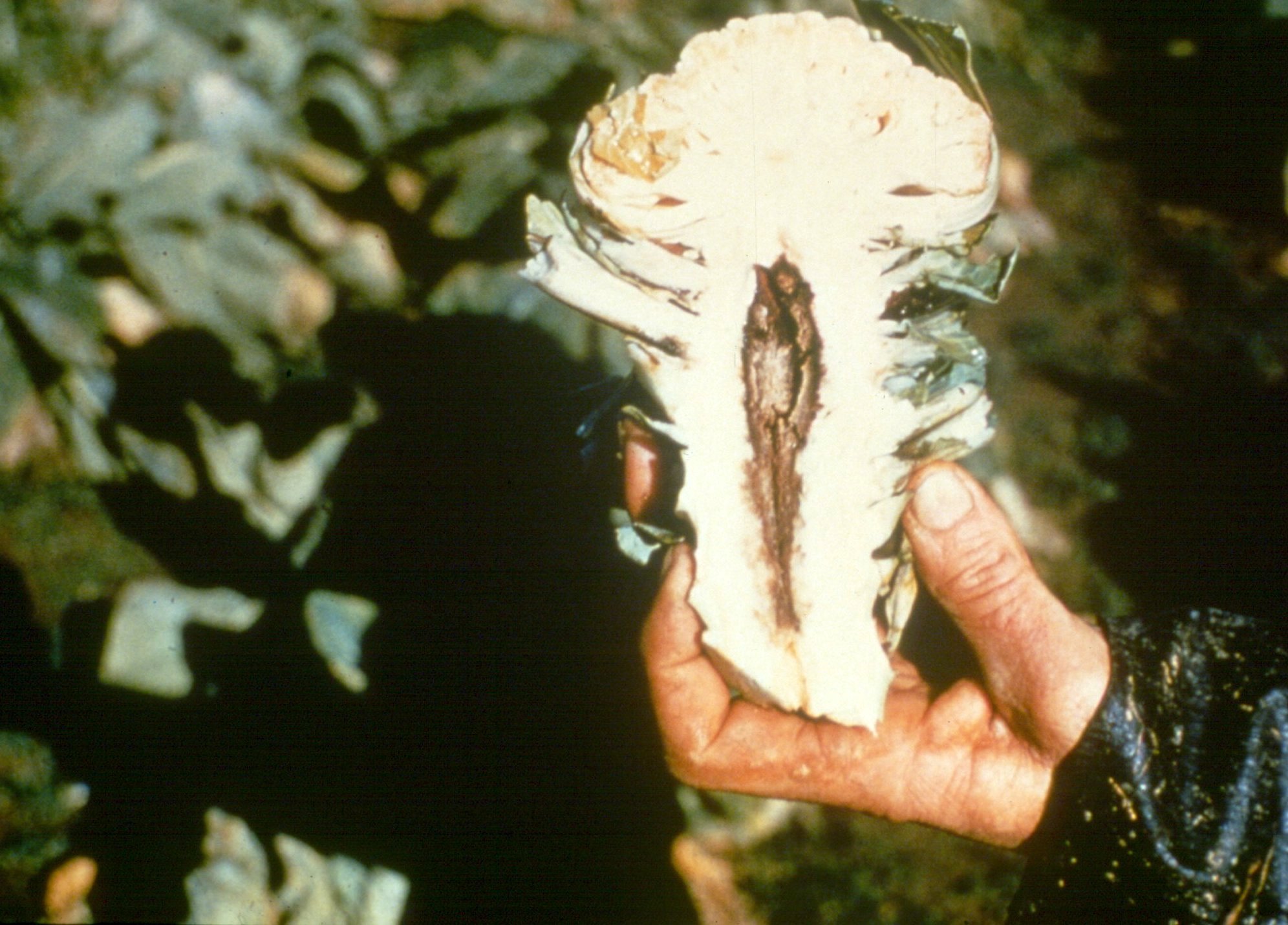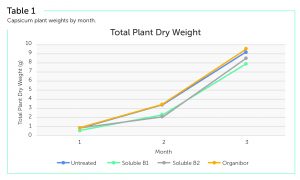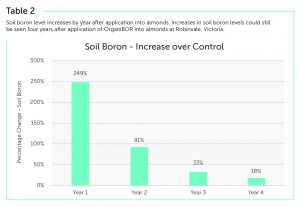
Webinar recording: Advancements in biopesticides for profitable veg production
1 March 2022
AUSVEG visit to Tasmania
1 March 2022With a fine margin between deficiency and toxicity – and easy leaching out of the soil profile – boron works with calcium to build a strong cell structure in plants to prevent symptoms like internal flecking in potatoes or hollow heart in brassicas. It also has a prominent role in pollination and is needed for proper root elongation. Vegetables Australia investigates.
Boron management in vegetables has often been problematic. Fully soluble forms of boron that can be blended into fertiliser mixes must be applied at modest doses to manage the risk of toxicity.
However, one or two leaching events can eliminate boron from the soil profile, particularly in sandy soils. Foliar sprays are also an option – but with boron being needed constantly through the plant’s growth cycle and crops like potatoes being unable to translocate boron easily – frequent applications are required.
One solution is to use a slow-release form of boron.
Omnia Specialities is the Australian distributor for OrganiBOR, a boron product containing calcium and magnesium borate that are citrate soluble rather than water soluble. It is also a certified input for organic producers.
“Mined in the Andes in South America, the boron in OrganiBOR slowly leaches from the mineral granules into the soil solution. This gives a great safety profile to the product, with far less risk of toxicity,” Omnia Specialities Innovation & Development Manager Andrew Doecke explains.
“This was demonstrated in a recent independent glasshouse trial on capsicums. Two water soluble forms of boron applied to the soil at planting at a rate of 2.5 kilograms per hectare of elemental boron showed visual toxicity symptoms and significantly decreased plant growth (as shown in Table 1 below). However, this product showed no toxicity symptoms.”
More importantly, OrganiBOR increased the weight of the capsicum fruit over control, whereas the toxicity of soluble boron reduced fruit growth.
“Calcium content was also statistically increased by the application, which indicates the correct balance of boron supply leading to healthy root growth and calcium uptake,” Andrew says.
The bottom line
Growers have consistently seen good boron availability for at least two seasons per application of OrganiBOR.
“This makes it a ‘set and forget’ product where the soil can be treated every two years, using soil tests to monitor levels, regardless of how many crop cycles are carried out. The combination of ease of use, crop safety and consistent boron supply to the crop make this the premier boron solution for vegetable crops,” Andrew concludes.
Find out more
Please click here to contact your local Omnia Specialist Agronomist.
Cover image: Boron deficiency leads to hollow heart in cauliflowers. Image courtesy of the International Plant Names Index.



